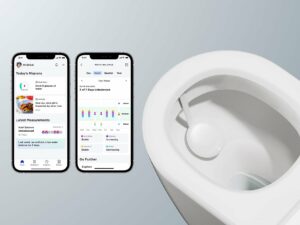<!–
–>

US-based Reflow Medical presented six-month findings from a clinical trial investigating its stent system for treating patients with infrapopliteal arterial disease.
The results were presented at the Leipzig International Course (LINC) in Leipzig, Germany which took place on 6–9 June.
The prospective, non-randomised, multicentre, single-arm trial (NCT03807531) saw patients treated with the company’s Bare Temporary Spur Stent System in conjunction with a commercially available paclitaxel-coated balloon. According to the trial entry on ClinicalTrials.gov, the estimated enrollment was 100 participants with centres across Germany, New Zealand and Switzerland.
The data showed an 86% primary patency rate at six months, indicating that the primary effectiveness endpoint was met. Vascular patency describes the degree to which blood vessels are unobstructed.
The primary safety point was also met. After 30 days, all the patients were free from target limb major adverse limb events (MALE) and procedure-related death.
The company also unveiled promising results from a vessel recoil sub-study involving 38 patients. A vessel recoil reduction of more than 50% was noted.
Depending on the results from further follow-ups in the study, the stent could provide another treatment option for patients with peripheral arterial disease (PAD) and critical limb ischemia (CLI). The device has a series of expandable spikes, which allow antiproliferative drugs to seep into the vessel wall.
A market model by GlobalData forecasts the peripheral vascular stent market to be worth $3bn by 2033.
Trial investigator Dr Michael Lichtenberg said: “It’s gratifying to see the improvement in our patients six months after treatment with the Spur stent system.
“We observed improvements in their Rutherford class scores, and fewer than 8% required revascularisation during the six-month period.”
Sub-study investigator Professor Thomas Zeller said: “Calcification did not appear to have an effect on vessel patency or vessel recoil, suggesting that the Bare Temporary Spur Stent System may modify calcification, decrease recoil and enhance drug uptake.”
<!– GPT AdSlot 3 for Ad unit 'Verdict/Verdict_In_Article' ### Size: [[670,220]] —
!– End AdSlot 3 –>
- SEO Powered Content & PR Distribution. Get Amplified Today.
- EVM Finance. Unified Interface for Decentralized Finance. Access Here.
- Quantum Media Group. IR/PR Amplified. Access Here.
- PlatoAiStream. Web3 Data Intelligence. Knowledge Amplified. Access Here.
- Source: https://www.medicaldevice-network.com/news/reflow-medical-vascular-stent-shows-promising-initial-results/
- :has
- :not
- 100
- 220
- 30
- a
- According
- across
- Ad
- adverse
- After
- All
- allow
- also
- an
- and
- Another
- appear
- ARE
- At
- available
- BE
- blood
- by
- centres
- class
- Clinical
- commercially
- company
- Company’s
- conjunction
- could
- course
- credit
- critical
- data
- Days
- Death
- decrease
- Degree
- device
- DID
- Disease
- dr
- drug
- Drugs
- during
- effect
- effectiveness
- end
- Endpoint
- enhance
- enrollment
- entry
- estimated
- events
- expandable
- fewer
- findings
- For
- forecasts
- Free
- from
- further
- Germany
- GlobalData
- Have
- HTTPS
- image
- improvement
- improvements
- in
- indicating
- initial
- International
- into
- involving
- ITS
- jpg
- june
- major
- Market
- May..
- medical
- met
- Michael
- model
- modify
- months
- more
- New
- New Zealand
- noted
- observed
- of
- on
- Option
- or
- our
- pad
- participants
- patients
- period
- peripheral
- Place
- plato
- Plato Data Intelligence
- PlatoData
- Point
- presented
- primary
- Professor
- promising
- prospective
- provide
- Rate
- Recoil
- reduction
- required
- Results
- Safety
- Said
- saw
- scores
- see
- Series
- Share
- showed
- Shows
- SIX
- Six months
- Size
- spikes
- Study
- switzerland
- system
- Target
- temporary
- than
- that
- The
- their
- this
- to
- took
- treated
- treating
- treatment
- trial
- unit
- unveiled
- Vessel
- Wall
- was
- were
- which
- with
- worth
- Zealand
- zephyrnet













